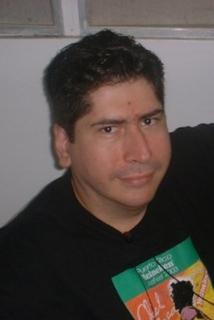Puerto Rico's Rossello: Federal voting rights an unfinished business
 Puerto Rico's Rossello: Federal voting rights an unfinished business
Puerto Rico's Rossello: Federal voting rights an unfinished businessH.R. 900, the extremely promising Puerto Rico Democracy Act of 2007, is the subject of hearings in the House.Pedro Rossello Special to the Sentinel Posted April 3, 2007
Little by little, over the course of many generations, the American people have achieved a broad consensus on a topic that arguably should never have divided them. Arduously (and entirely too gradually), our body politic has reached the conclusion that second-class citizenship is simply wrong.Today, virtually everyone accepts the following propositions:
In the 18th century, it was wrong to deny voting rights to white male citizens whose only defect was their failure to own land.In the 19th century, it was wrong to deny voting rights to male citizens whose only defect was that they were black.In the early 20th century, it was wrong to deny voting rights to citizens whose only defect was that they were women.So powerful has this trend become that, more recently, the federal government has further expanded its electoral franchise to encompass such disparate groups as 18-to-20-year-olds, the residents of Indian reservations, and even Americans who relocate to foreign countries.Now, in the early 21st century, few would quarrel with the assertion that it is wrong for our government to deny voting rights to any law-abiding adult American citizen. Indeed, many may be under the impression that every such individual already possesses those rights.Yet exceptions do remain. Significant exceptions.
One is the District of Columbia, where several hundred thousand U.S. citizens totally lack voting representation in their national legislature.In 1993, frustrated by repeated fruitless efforts to attain civic equality, a group of District residents petitioned the Organization of American States (OAS) -- which is conveniently headquartered right there in Washington, D.C. A decade later, that 34-nation body's Inter-American Commission on Human Rights unequivocally "blasted" the United States for circumscribing the federal voting rights of citizens residing in its capital city.
The commission promulgated a single emphatic recommendation to the United States of America: "Provide the Petitioners with an effective remedy. . ."Since the issuance of that report, unprecedentedly aggressive bipartisan congressional moves have been afoot to enhance the federal voting rights of Washington, D.C.'s, population -- although that task is inherently problematic, due to the district's unique constitutional status as the explicitly non-state "seat of Government of the United States."Compared to Washington's, Puerto Rico's situation ought to be a piece of cake: Puerto Rico is simply a U.S. territory, inherently no different from the dozens of other U.S. territories that have surmounted colonial disenfranchisement in the past.
But unlike every territory acquired by Uncle Sam before Spain's cession of Puerto Rico in 1898, our territory was never formally acknowledged to be "a part of" the United States. Accordingly, the people of Puerto Rico -- despite having been U.S. citizens for no fewer than 90 years -- find ourselves residing on a chunk of real estate that merely "belongs to" the United States.
This Supreme Court-ratified distinction is less subtle than it sounds (entire books have been written about its burdensome implications); and a major consequence of that distinction has been profound uncertainty among Puerto Ricans as to how to go about addressing the issue of our civic inequality.
We need to know what options are at our disposal.To their immense credit, the last three U.S. administrations have concurred. Moreover, there is reason to hope that Congress may finally be moving in that direction too: H.R. 900, the extremely promising Puerto Rico Democracy Act of 2007, is currently the subject of hearings in the House of Representatives.
Meanwhile, the clock will be ticking at the OAS -- where the Inter-American Commission on Human Rights is weighing the merits of a fresh petition for redress of grievances against the United States. This time, the citizens demanding federal voting rights are residents of Puerto Rico -- including yours truly.
Pedro Rossello, a pediatric surgeon, was governor of Puerto Rico from 1993 until 2001 and has been a member of the Puerto Rico Senate since 2005. He wrote this commentary for the Orlando Sentinel.



0 Comments:
Publicar un comentario
<< Home